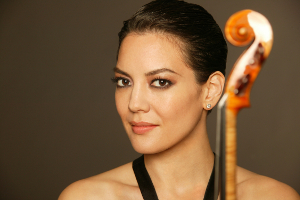In the midst of weather entirely unseasonable for North Carolina in early April (near-freezing temperatures with persistent heavy rain and sleet) the Winston-Salem Symphony welcomed an enthusiastic audience to Reynolds Auditorium (a very nicely appointed high school auditorium in a residential neighborhood) for an evening with the man who is certainly the most celebrated flutist worldwide, Sir James Galway. The man himself did not appear until after intermission, but the programming for the first half was shaped by his presence, combining a Celtic-flavored work by onetime bad-boy Sir Peter Maxwell Davies with a little-known American work by an academic composer, Walter Piston.
An Orkney Wedding, with Sunrise, Op. 120a, by Davies, reflects the atmosphere and heritage of the Orkney Islands, a small cluster directly off the very northern tip of Scotland, with the Shetlands and the Faroes even farther off. Davies has lived in the Orkney Islands since 1971. The piece, written for John Williams and the Boston Pops in 1985, is full of Scottish folk-influenced material, treated affectionately, with idiomatic slides in the melodies, and Scotch snaps in the rhythms. A striking moment is the lovely violin solo for the concertmistress (accompanied by the other principal strings, solo) reflecting the moment late in the wedding celebration when a sufficiency of whiskey has been imbibed, leading to a very original musical depiction of the sun rising after an entire night of partying. A perfect and unforgettable coup de théâtre, a solo bagpiper processing to the stage from the rear of the hall (piped by principal oboe John Hammarback in full Scots regalia), brings the piece to a wonderful conclusion. The piece was sympathetically and movingly rendered by conductor Robert Moody and the band.
Walter Piston was once best known for his harmony textbook – he was a longtime professor at Harvard – and for a very few of his works which entered the repertoire, the best-known of which is probably the work chosen by Moody, the Suite from the Incredible Flutist, a work also commissioned by the Boston Pops, in 1938. The Suite reveals a composer deserving wider recognition (who has heard any of his eight symphonies in concert?), attractive, sensuous (in the “Tango of the Merchant’s Daughters”), and wittily American (the Circus March for winds, accompanied by loud cheers and huzzahs from the strings section, punctuated by virtuoso solo barks from a contrasbassist), with a rousing polka closing the work. Thoroughly enjoyable! More Piston, please.
The gala portion of the evening got underway after intermission, with our guest presenting a virtuoso reading of the Mozart Concerto in D, K 314 (285d). Galway is the most serious of musicians, with a superb technique that is entirely in service of the expression of the music, an absolute economy of means (his fingers seem barely to move), a poetry in which the musical gestures are heightened and punctuated with his body language, as he steps or turns or reaches into a phrase, a basic posture that seems completely at ease, an ability to shape tone color as needed. To be brief, a phenomenal musician who is still, at age 73, at the very top of his game.
For the closing work on the program, Galway was joined by his wife, Lady Jeanne Galway, flute, for a three-movement pasticcio of a plethora of Mozartean themes, The Magic Flutes, by David Overton, and put together for the duo (composed is too strong a word) for the most recent Mozart year. Lady Galway might be a valuable and expressive artist, but you would be hard put to tell from listening to the two Galways together in this far-overlong farrago. I really can’t imagine what audience could possibly find this contraption entertaining, and programming it shows a terrible lack of good taste on someone’s part. I am not one who thinks that music must be difficult and serious to be good, far to the contrary, but this was much beyond the pale.
The four encores began with yet another Mozart abomination, an arrangement of the “Alla Turca,” and moved to an attractive and effective “Shenandoah,” set for two flutes by composer Cindy McTee. Solo, Sir James Galway closed the evening with “Danny Boy,” perhaps the simplest, most beautiful and most heartfelt moment of the night, played with the most perfect cantabile, and finally “Brian Boru’s March,” a traditional Irish tune.











